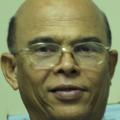Burma's military regime has recently announced that for the emergence of a peaceful, modern discipline-flourishing democratic nation it terminated the prison terms of 7,114 prisoners for their good conduct and discipline in consideration of their families, and released them from the respective jails on 17 September 2009, to enable them to serve the interests of the regions, their own, and the State, after realizing the government's compassion and goodwill.
Release of 7,114 prisoners in the lead-up to next years designed elections the first in 20 years seems to be one of the regime's usual twist-and-turn policies. Political observers have criticized the move as part of an inconsistent attempt to reduce international pressure on the junta at the start of the UN General Assembly in New York this week.
It was not a coincidence that the announcement of the prisoner releases came on the eve of the blood-spattered anniversary of the military coup of the junta on September 18, 1988. Besides, it also came out on the second anniversary of the 'Saffron Revolution' in which scores of the Buddhist monks were killed and hundreds jailed.
So, it is clear that the releases of prisoners intended to decrease anti-junta demonstrations on the relevant anniversary.
Two years ago, the leadership of Burma's brave monks encouraged a nation-wide revolution against the military command. Hundreds of thousands of monks and citizens launched more than 150 remonstrations throughout the nation. On September 26, the military began its ruthless crackdown on monk-protesters, arresting thousand and killing dozens.
The junta's announcement said the prisoners were being released on humanitarian grounds so they could participate in multiparty elections next year. But, out of 7,114 released inmates, only 128 are political prisoners. According to AAPPB, more than 2,000 political prisoners remain in jail, including at least 124 activists who are in poor health. The association said majority of the released inmates were criminals. Up to now more than 40 members of the NLD have been freed, the spokesman for the National League for Democracy (NLD) said, among them three were elected members of parliament in 1990.
UN chief Ban Ki-moon welcomed the release of a batch of political prisoners in Myanmar but urged the junta to free those still being held, including democracy icon Aung San Suu Kyi. The UN secretary general has repeatedly pressed for the release of the opposition leaders and other political prisoners.
The prisoner releases also emerge just days before the junta's Prime Minister Gen Thein Sein attends the UN General Assembly for the first time in 14 years. Many political observers consider the release of 7,114 is intended to ward off criticism at the General Assembly and to show the international community that the military regime is cooperating with the UN.
Anyhow, on 23 September 2009, Secretary-General's statement to the media on the High-Level Meeting of the Group of Friends on Myanmar came out.
In the statement, Mr. Ban Ki-moon emphasized: "As I said today in my address to the General Assembly, we will work hard for democracy, national reconciliation and human rights in Myanmar. The release of some political prisoners last week is a step in the right direction, but it falls short of our expectations. All political prisoners must be released -- including Daw Aung San Suu Kyi."
Yet, the amnesty for political prisoners is basically not enough and unbelievably late. Since 7,114 inmates were released, only 128 political prisoners were in the released-list. It means less than 2 percent were political prisoners and 98 percent were criminals and former military intelligence personnel. Until now there has been no prominent political prisoner freed. According to diplomats in Rangoon, there are signs of release of more political prisoners. But, they look like to be released in agreement with supporting the junta's fraudulent 2010 election.
During the second meeting of the Group of Friends on Myanmar/Burma at the level of Foreign Ministers, US Secretary of State Hillary Clinton also called on the Burmese government to begin talks with the opposition and ethnic minorities about real democratic change in the nation.
"We believe that sanctions remain important as part of our policy but by themselves they have not produced the results that had been hoped for," Mrs. Clinton told reporters at the United Nations in New York. "Engagement versus sanctions is a false choice in our opinion, going forward we will be employing both of those tools."
According to NCGUB, the sanctions reinforce both the legitimacy and possibility of meaningful dialogue in Burma. The goal of sanctions is not severe economic destabilization aimed at toppling the regime. They serve as a pressure mechanism to persuade the regime to recognize the crisis in the country and the need for a peaceful resolution of the crisis. They serve as part of the overall international strategy to facilitate a tripartite dialogue in Burma.
Senior General Than Shwe, who has been using so many immoral plans to clear out the NLD and its charismatic leader from Burma"s political arena, stubbornly turns a deaf ear to free Aung San Suu Kyi. He selfishly turned down to accept a tripartite dialogue for genuine reconciliation. If he did not release all political prisoners, including Aung San Suu Kyi, majority of the population would not regard the coming poll as free and fair elections.
Mrs. Clinton indicated that there would be no softening of U.S. demands toward Burma and repeated calls for the military leaders to release opposition leader and Nobel Peace Prize winner Aung San Suu Kyi.
(Note: You can view every article as one long page if you sign up as an Advocate Member, or higher).





